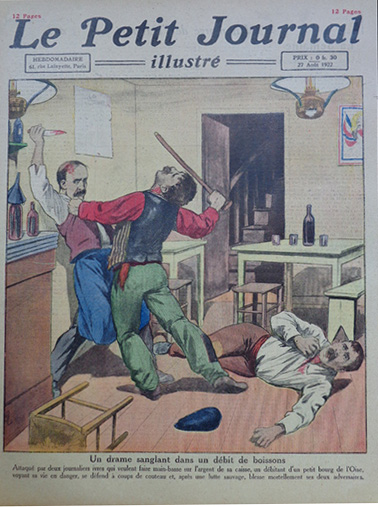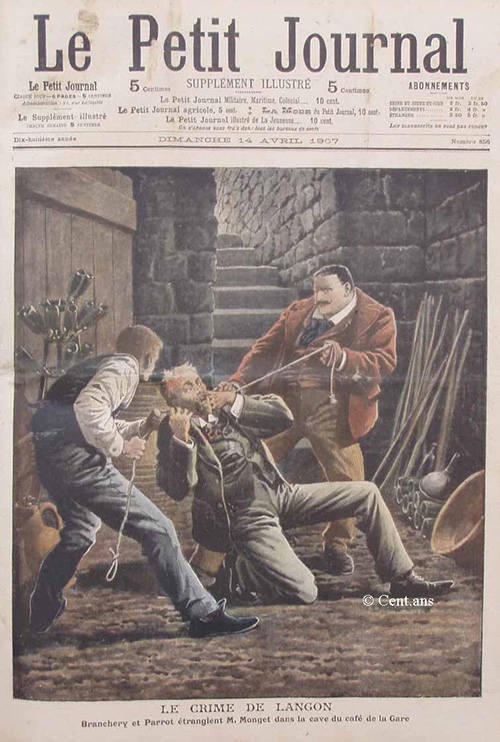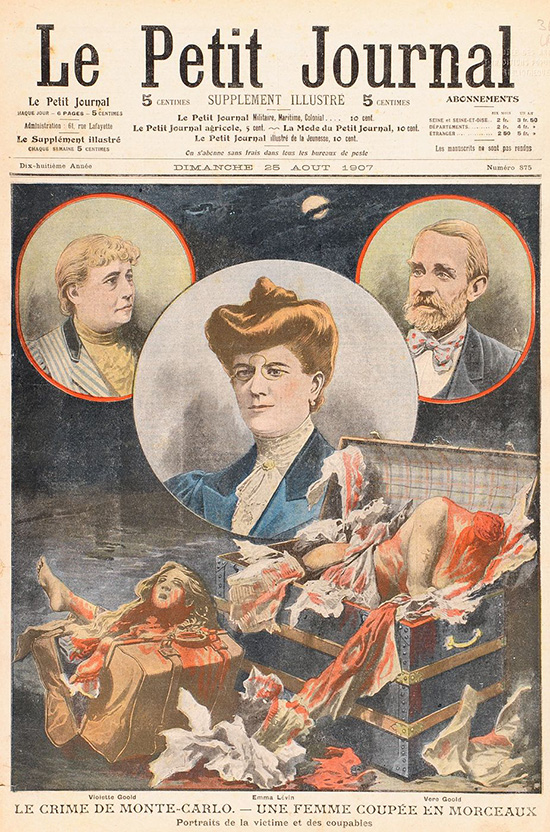A Crime Wave in the Parisian Press
Thomas Cragin, Murder in the Parisian Streets, Manufacturing Crime and Justice in the Popular Press, 1830-1900 (Lewisburg, Pennsylvania: Bucknell Press, 2006, pp.37-38.
In the late 19th century Parisian newspapers, such as the very successful Le Petit Parisian bombarded reader with accounts of gruesome murders that reinforced the impression that French civilization was on the decline.
Above all, Le Petit Journal's success depended upon the vagaries of violent crime. At its premier the tabloid increased its circulation by over 200,000 in a few weeks by focusing on a criminal case involving multiple murders. A gruesome murder especially a mass murder, and particularly one in or near Paris, could greatly expand sales as nearly no other news item could . When the news of the Troppmann murders broke in September 1869, for example, Le Petit Journal' s circulation grew fifty percent almost overnight. By the time Troppmann had been sentenced to death in January 1870, the paper was selling almost 600,000 copies a day, doubling its circulation since the previous August. But just as cases such as this one could boost sales, their absence temporarily reduced circulation . Within a month of the conclusion of Troppmann's execution, Le Petit Joumal's circulation had fallen back nearly to its previous level. Le Petit Journal's sales depended, then, on murder stories, and , realizing this fact, its publishers tried to ensure a steady supply.
200,000 in a few weeks by focusing on a criminal case involving multiple murders. A gruesome murder especially a mass murder, and particularly one in or near Paris, could greatly expand sales as nearly no other news item could . When the news of the Troppmann murders broke in September 1869, for example, Le Petit Journal' s circulation grew fifty percent almost overnight. By the time Troppmann had been sentenced to death in January 1870, the paper was selling almost 600,000 copies a day, doubling its circulation since the previous August. But just as cases such as this one could boost sales, their absence temporarily reduced circulation . Within a month of the conclusion of Troppmann's execution, Le Petit Joumal's circulation had fallen back nearly to its previous level. Le Petit Journal's sales depended, then, on murder stories, and , realizing this fact, its publishers tried to ensure a steady supply.
The mass-circulation tabloids searched far and wide for reports or murder and mayhem, taking advantage of the emerging news services which provided newspapers with up-to-date reports, sent by telegraph, from all over the world. The Parisian tabloids seized upon the White Chapel murders by the Ripper for precisely these reasons and emphasized far more than their London counterparts the gruesome details of each of t hose murders. When the news available was inadequate to this task, tabloids pursued fictitious leads and sometimes even reported fiction as fact . . . . Paris's Prefect of Police complained of this practice in memoranda from 1884 and 1886 . . .
 |
 |
 |